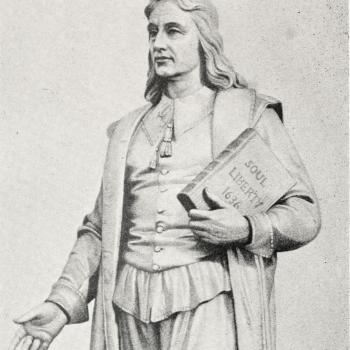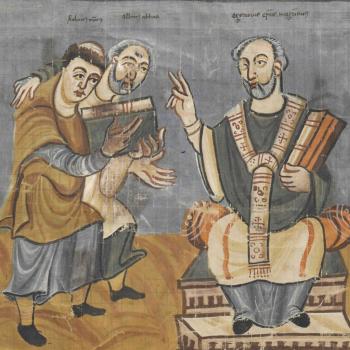I have just read Rupert Shortt’s impressive new book Christianophobia: A Faith Under Attack. I should explain that I got my copy direct from the UK, and I don’t know exactly when it will be available officially on this side of the Atlantic. Very soon, I hope, as it is just an excellent study of anti-Christian persecution around the world. Really, it’s a splendidly rich and informative book, and very up-to-the moment in its coverage. It has been favorably reviewed in the Independent, Times Literary Supplement, and elsewhere .
Shortt argues that what he calls Christianophobia is “The persistent prejudice you’ve never heard of.” As he writes, “Imagine the unspeakable fury that would erupt across the Islamic world if a Christian-led government in Khartoum had been responsible for the deaths of hundreds of thousands of Sudanese Muslims over the past 30 years. Or if Christian gunmen were firebombing mosques in Iraq during Friday prayers. Or if Muslim girls in Indonesia had been abducted and beheaded on their way to school, because of their faith.” Of course, those horrors are exactly what have been inflicted on Christians in recent years, and still many informed people seem neither to know nor care about them.
Tragically, the Christmas season is usually the most dangerous of all, a time when extremists of all shades feel the need to target Christian believers. (Christmas 2012 was a relatively quiet season: as World reports, only a dozen or so worshipers perished at the hands of Nigeria’s Islamist terrorists. Hardly enough for the mainstream media even to notice).
I was impressed by Shortt’s personal observation of the situations he describes. Also appealing is his avoidance of the straightforward “Clash of Civilizations” idea. Although he explores situations where the persecutors are Muslim – Nigeria, Egypt, the Middle East, Indonesia – this is in no sense a tirade against Islam. Several of his examples concern the persecution of Christians by other Christians, as in Belarus; by Indian Hindus; or by secular states of no faith whatever. He even addresses Christian sufferings in Israel, a subject that American observers are usually too timid to confront.
He’s also interesting on the historical roots of these persecutions, situating some in bygone imperial policies. While he certainly does not seek to lay the blame for all modern atrocities on the imperial inheritance, he does show how that history created and heightened religious tensions. In many instances, modern-day laws used against Christians and other minorities are borrowed wholesale from statutes passed by the old colonial empires, British or Dutch, with not too many modifications.
I hope Americans will soon have the chance to read this fine book.
By the way, Rupert Shortt is also Religion editor of the Times Literary Supplement, where he recently did an interesting review on contemporary liturgy.
















